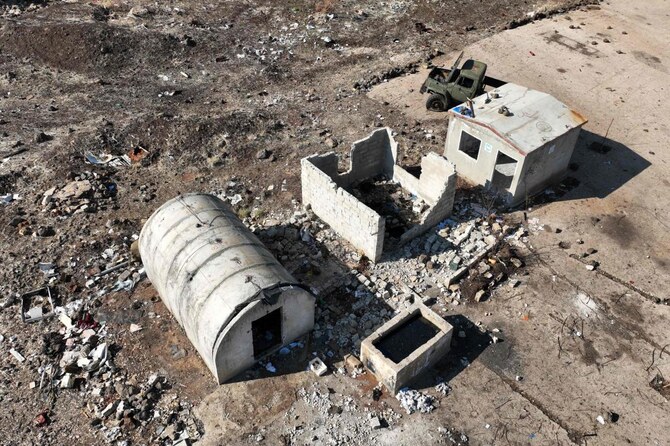BEIRUT: Interior Minister Bassam Mawlawi pledged that the Lebanese state “will spare no effort in thwarting all smuggling operations and preventing harm to our Arab brothers.”
He also announced on Thursday evening that the Anti-Narcotics Office of the Judicial Police, in cooperation with the Anti-Narcotics Division of the Customs, had seized about 12 tons of drugs hidden in boxes of powdered juice bound initially for Sudan.
Two days earlier, the minister revealed that authorities had seized a large quantity of captagon hidden in a tea shipment being sent by sea to an African country and then on to the Gulf.
The seizures come as Lebanon strives to show that it takes the smuggling of drugs to Gulf nations seriously, and highlight the effectiveness of its security and intelligence measures to combat the illicit trade.
BACKGROUND
Kuwait’s foreign minister said recently that he has given Lebanese authorities a list of suggested measures to be taken to ease a diplomatic rift with Gulf countries.
As part of efforts to repair strained relations between Lebanon and Gulf states, Kuwaiti Foreign Minister Ahmed Nasser Al-Mohammed Al-Sabah presented a new initiative during talks in Lebanon last week. It includes 10 items that “represent Arab, Gulf and international conditions for rebuilding confidence with Lebanon,” he said during his visit.
Lebanese Foreign Minister Abdullah Bou Habib will deliver an official response to the Kuwaiti initiative on Saturday.
Prime Minister Najib Mikati is trying to smooth the rough edges of the response, according to a source close to the PM, which will include a call for dialogue on the issue of Hezbollah’s weapons on the grounds that Shebaa Farms and Kafr Shuba are still occupied by the Israelis.
The source also said that Mikati reiterates Lebanon’s continuing adherence to the Taif Agreement that ended the civil war in the country, international resolutions and efforts to ensure the best possible relations with the region and the world.
The Kuwaiti initiative has been extensively discussed among members of the ruling Lebanese authority and it is understood the response has undergone several revisions.
Leaked information suggests that the initiative includes “harsh conditions, some of which are impossible to implement, such as Security Council Resolution 1559, which calls for the disbanding and disarming of all Lebanese militias.”
It also is said to call for Lebanon to adhere to political, economic and financial reforms, rehabilitate state institutions, adopt neutrality, respect the sovereignty of Arab and Gulf countries, halt any political, media or military interference in these countries, respect the decisions of the Arab League, and commit to international resolutions.
Other conditions include disarming all militias and extending government control over all Lebanese territory; serious measures to control Lebanese border crossings and prevent drug smuggling, including the adoption of a clear and decisive security policy that prevents the targeting of Gulf countries by drug-smuggling operations; measures to prevent interference by Hezbollah in the Yemen war; and taking firm steps to prevent any meetings or gatherings that might affect the internal affairs of Gulf states.
Gebran Bassil, the head of the Free Patriotic Movement, said that the Kuwaiti initiative includes conditions that would require time to be implemented, and some that are contentious to the Lebanese.
“Discussing the issue of arms is dangerous,” Bassil, whose bloc constitutes President Michel Aoun’s team in the parliament, told Russia Today.
“There is Israeli aggression and Palestinian invasion happening on Lebanese territories, and external pressure on Lebanon leads to an internal implosion as the conflict becomes a conflict between those who support Hezbollah’s weapons and those who are against them.”
Nabih Berri, the parliament’s speaker, said his position on Hezbollah’s weapons has not changed.
“Some Lebanese lands are still occupied by Israel, which gives these weapons a reason to exist and gives Hezbollah and Lebanon the right to resist the occupation,” he said.
Although Hezbollah has not responded directly to the Kuwaiti initiative, the party announced that Secretary-General Hassan Nasrallah will deliver a speech on Monday. It is not known whether he will be supportive of the initiative or renew his criticism of Gulf states.
Lebanon’s Al-Markazia news agency quoted a source close to the party as saying: “Nasrallah will focus on the reasons and motives that dictate Hezbollah’s adherence to the resistance as long as there is an inch of Lebanese territory occupied.”
In his Friday sermon, Sheikh Ahmed Qabalan, a Shiite cleric affiliated with Hezbollah and the Amal movement, addressed “brothers in the Gulf Cooperation Council” and said: “The enemy is Israel, not the Arabs, and the danger lies in Tel Aviv, not in Beirut’s southern suburb.
“The solution does not start with (UN Security Council resolutions). The weapons of the resistance are a guarantee for the Arabs and not against them.
“Today, the resistance’s weapons are a guarantee for Lebanon and the greatest national need to prevent any civil war, sectarian strife or an Israeli or takfiri invasion.”


























